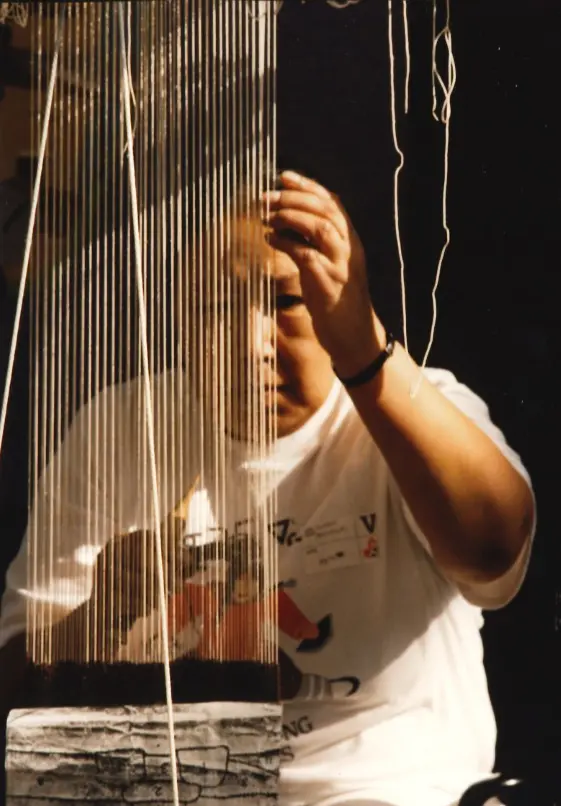Advocacy
At Pauktuutit, our advocacy is dedicated to addressing the systemic issues that impact Inuit women, girls, and gender-diverse individuals. By integrating Inuit-specific Gender-Based Analysis Plus (ISGBA+) and Inuit Qaujimajatuqangit (IQ) into our work, and through our commitment to the principles of the United Nations Declaration on the Rights of Indigenous Peoples (UNDRIP), we aim to dismantle barriers and empower our communities.
Advocacy Areas
Our advocacy efforts focus on critical areas, including healthcare access, poverty reduction, violence prevention, and housing, ensuring that Inuit voices are heard and respected in the decision-making processes that affect our lives.
Health
We combat anti-Indigenous racism in healthcare, focusing on coerced sterilization and medical violence against Inuit women and gender-diverse Inuit. Our efforts include reviving Inuit midwifery practices and promoting access to culturally safe healthcare, allowing Inuit to access the services we need without leaving our communities.
Learn more
Poverty Reduction
We emphasize food sovereignty and reducing living costs for Inuit women and families, addressing the high rates of food insecurity. Our initiatives aim to reconnect communities with traditional food systems, explore guaranteed basic income, and increase leadership opportunities for Inuit women and gender-diverse Inuit in decision-making processes.
Learn more
Violence Prevention
Pauktuutit addresses the crisis of Missing and Murdered Indigenous Women, Girls and gender-diverse individuals (MMIWG2S) by advocating for the implementation of the Calls for Justice and confronting the colonial justice system. We support revitalizing Inuit justice systems to ensure safety and self-determination for Inuit women and gender-diverse individuals.
Learn more
Safe & Appropriate Housing
We advocate for safe, affordable housing as a fundamental need for Inuit communities. Our focus includes access to shelters and transitional housing with support services for women facing violence or instability. We hold the federal government accountable for delivering on their promise of safe housing, which is essential for Inuit families to thrive.
Learn more
Our Advocacy Foundations
Our advocacy is rooted in the lived experiences, knowledge, and priorities of Inuit women, children, and gender-diverse people. We work to address systemic inequities through a framework that reflects Inuit values, rights, historical experiences, and present-day realities. These foundations guide our approach in advocating for policy change, service development, and community-led solutions.
Inuit Qaujimajatuqangit (IQ) is the foundation of our work, ensuring that advocacy aligns with Inuit ways of knowing, being, and doing. These interconnected principles—such as Piliriqatigiinniq (working together) and Aajiiqatigiinniq (consensus decision-making)—shape how we engage with communities and policymakers. Inuit solutions must be led by Inuit. By centering IQ, we strengthen approaches that are culturally meaningful and sustainable.
Inuit-Specific Gender-Based Analysis Plus (ISGBA+)
Gender-based analysis must reflect the realities of Inuit women and gender-diverse people. Inuit-specific GBA+ considers the distinct social, cultural, and historical factors shaping Inuit experiences, moving beyond standard frameworks that do not account for colonial policies, geographic isolation, and systemic barriers. Our approach ensures policies and programs reflect Inuit priorities, including violence prevention, access to safe housing, culturally relevant healthcare, and economic opportunities rooted in self-determination.
United Nations Declaration on the Rights of Indigenous Peoples (UNDRIP)
UNDRIP affirms Inuit rights to self-determination, land, culture, governance and real equal outcomes. Our advocacy demands that governments uphold these rights in ways that are more than symbolic. True implementation means ensuring Inuit-led services receive equitable funding, that policies reflect Inuit priorities, and that our communities have full autonomy in decisions that affect our lives. Inuit women, children, and gender-diverse people must be full participants in shaping the systems that impact them
Settler Colonialism: A Structure, Not an Event
Colonization is not just history—it is an ongoing system that continues to shape the realities of Inuit today. From forced relocations to the removal of children into state systems, these colonial structures impact housing, healthcare, justice policies, and beyond. Our advocacy challenges these structures, pushing for systemic change that dismantles barriers and ensures Inuit-led solutions are at the forefront. Recognizing colonization as a structure allows us to advocate not just for services, but for the transformation of the systems that continue to harm Inuit
